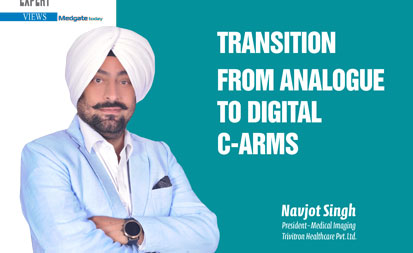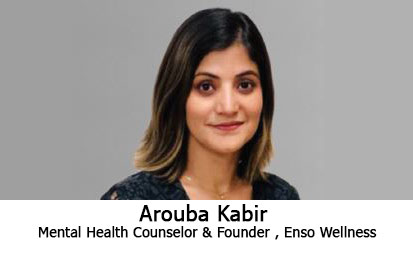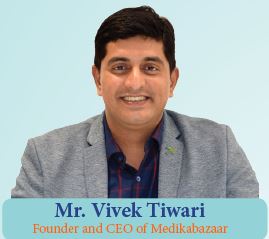How GAIA’s interconnected healthcare model helps in efficiency, quality and productivity during COVID times
Use of technology like IOT, AI is helping patients in the hospital at COVID times. Healthcare is a primary and essential segment for both corona and non-corona related medical services.Even before the COVID-19 pandemic, digital transformation

Use of technology like IOT, AI is helping patients in the hospital at COVID times.
Healthcare is a primary and essential segment for both corona and non-corona related medical services.Even before the COVID-19 pandemic, digital transformation of the healthcare segment was being considered to enable Digital Patient Experience Management and seamless delivery of services at every patient touchpoint through integrated solutions. The current pandemic, after the immediate term, will only fast track this transformation.
The ‘manual and touch’ model of Healthcare delivery in India
Healthcare delivery has relied on manual human-aided orchestration of services and staff to manage healthcare operations and patient care. The biggest barrier to adoption is mindsets and change management, rather than technological. Today, technologies are seamlessly integrated, easy to deploy, and driven by value-conscious principles. Hospitals and healthcare providers need to consider longer term efficiency impact to aid decision-making and leverage management driven vision to ensure change management, adoption, and capability building at every level within the organization.
From the patient perspective, the reliance on human connection has been important. However, given widespread adoption of digital and social tools, along with the new pandemic led “social distrust” which is already moving many industries towards contactless processes, patients would be open to adopting digital processes and systems. Hospitals need to ensure they implement systems, solutions, and dashboards that will enable them to meet the changing patient requirements and comfort with digital systems.
Hospitals need to understand patient experience at every care touchpoint- from OutPatient Departments to In Patient Rooms to the overall Exit Process. Several procedures and illnesses may require follow-ups or the hospital or doctor or nurses to remain in touch with the patient over an extended period of time.
COVID-19 Impact on Hospitals
The COVID-19 pandemic has brought into focus the notion of coordinated delivery of public health services and emergency care. At an aggregate national level, India spends a very small fraction of its GDP in healthcare initiatives. Our per capita presence of doctors, nurses, healthcare establishments, equipment, and systems are one of the lowest in the world.
Social distancing is creating the competing pressures of managing facilities with fewer staff and managing facilities to a higher level of hygiene and sanitation safety standards. Given this, workforce and site optimization will be critical. Digital, IOT, and AI based tools will enable hospitals and healthcare systems to manage sites, spaces, equipment, assets, and staff better.
Need for digital transformation
Healthcare systems and hospitals are dynamic and complex spaces where medical care needs to be complemented with a seamless orchestration of non-medical staff, assets, processes, and services to deliver quality care.
Following things that we need to ensure include-
- Workforce Management to enable seamless delivery of tasks and services
- Real Time LocationTracking for staff and assets
- IOT Based Monitoring of critical systems and spaces
- AI Based Optimization for dynamic task allocation
- Dynamic Service Orchestration for event driven and data driven workflows
- Cognitive Workflow Automation for data led optimization, alerts, and escalations
- Visual Command Centre Dashboards for data analytics and data driven decision making and service delivery optimization
- Hygiene Monitoring to ensure sanitation safety service levels
Together, these elements improve efficiency of operations, quality of care, and productivity of staff and assets. In turn, they help deliver better patient care and over the long term, optimized cost of healthcare delivery.
Our modular Digital+AI+IOT solution stack enables healthcare providers to measure, monitor, and improve service metrics. The solution consists of several elements.
Gaia repurposed its hospital service orchestration solution to enable hyper-local last-mile doorstep delivery of essentials and emergency services for the 4.4 Million residents of Agra District. Our solution connected 800 city organized retailers for food, milk, groceries across 101 wards to enable delivery connections during the peak of the lockdown. It enables citizens to raise emergency requests in 9 categories which are being served by the 600 volunteers of Agra Civil Defense in partnership with Agra Smart City.






